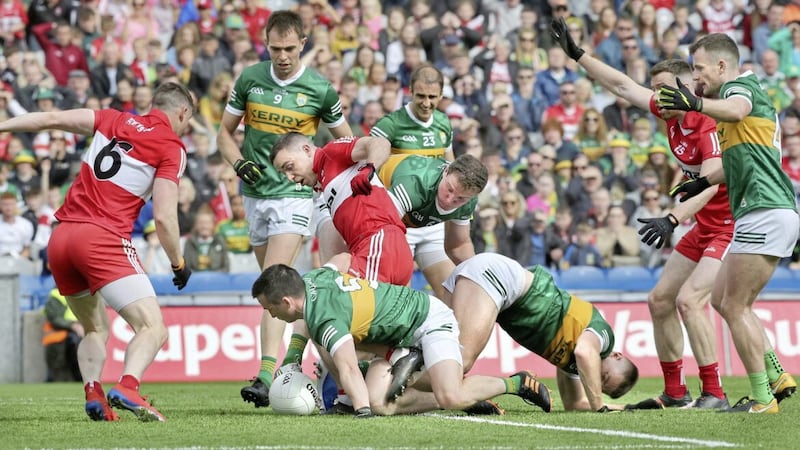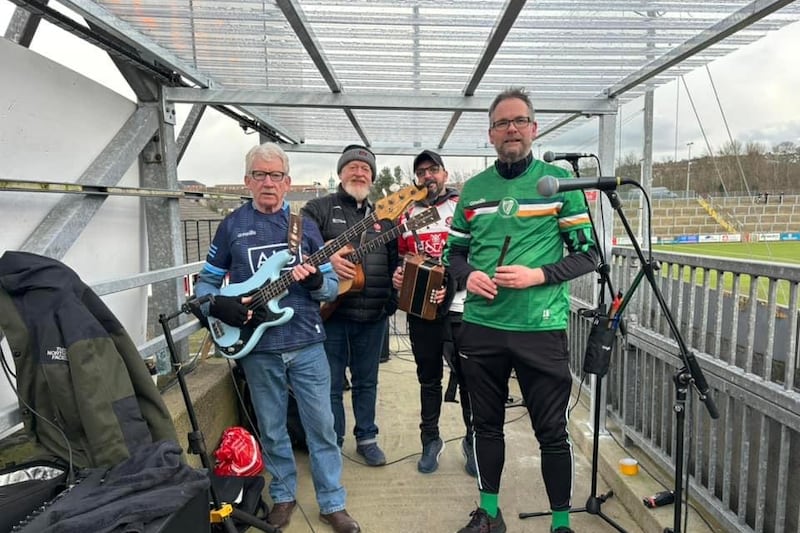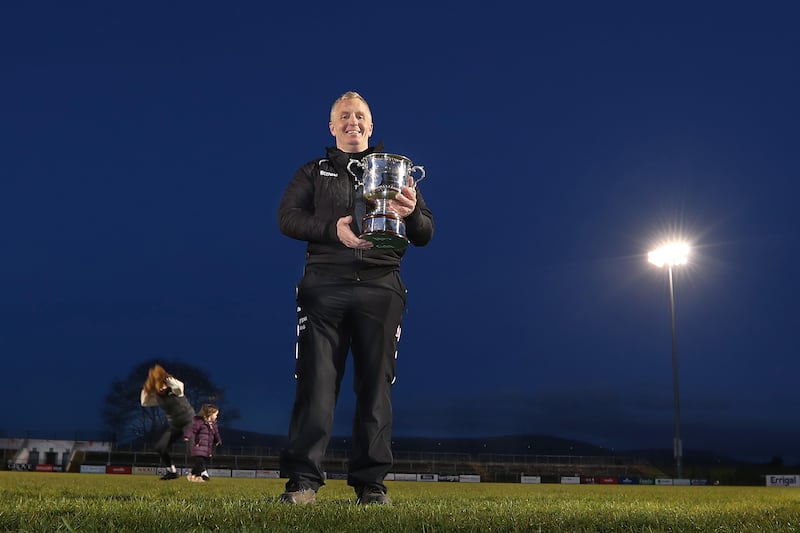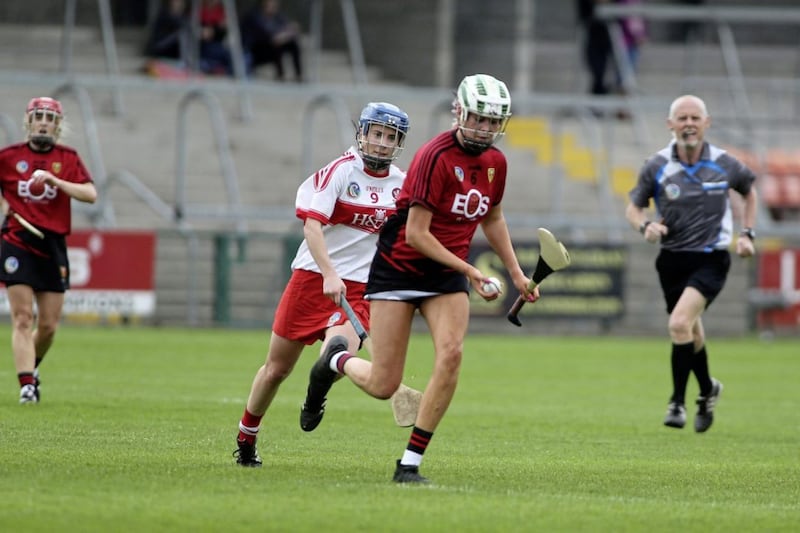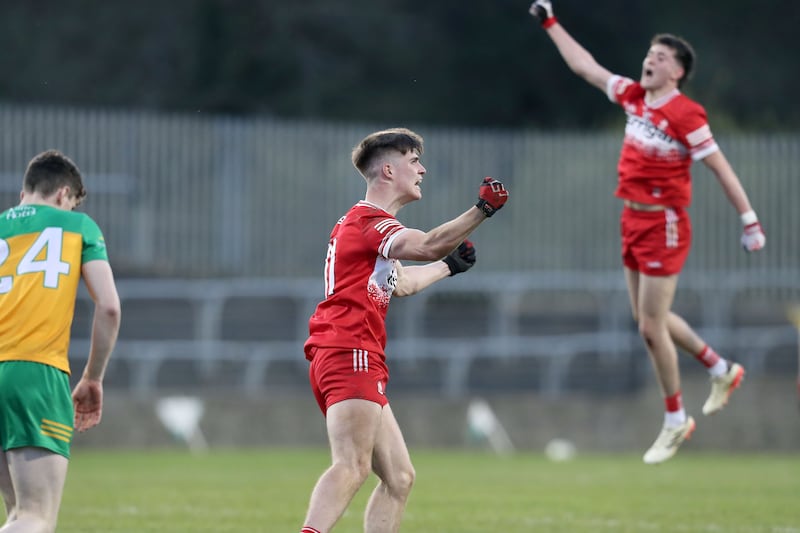FORMER soccer player, manager, and pundit Iain Dowie literally was a rocket scientist, having worked for British Aerospace, which might explain how he coined the brilliant word ‘Bouncebackability’.
The concept of positive reaction to adversity is one of the most important elements of sporting success, but achieving it under pressure is tough.
There’s been plenty of debate about various incidents in Sunday’s second All-Ireland SFC semi-final between Kerry and Derry: Kerry captain David Clifford’s shoulder on his opposite number Shane McGuigan; Kerry goalkeeper Shane Ryan colliding with the same opponent as he leapt to catch a high ball in midfield; a number of frees given and ‘fouls’ not punished, notably those involving the aforementioned Clifford and his marker Chrissy McKaigue; Gareth McKinless going to ground rather easily; Sean O’Shea seeming to punch the ribs of Brendan Rogers.
However, for all those disagreements and disputes, there was almost universal agreement that the free awarded to Kerry in the 66th minute for the merest of touches on Stephen O’Brien seconds earlier was incredibly generous.
For all Kerry’s quality and experience, that passage of play might have been a moment when they thought, ‘Jeez, this isn’t going to be our day…’
Derry’s Ciaran McFaul had flung himself to block a goal-bound shot from Kerry full-back Jason Foley, and the Maghera man celebrated that moment as if he’d netted at the other end himself.
Yet instead of Derry having dramatically denied the Kingdom a goal and maintained their two-point lead, that advantage was halved as referee Joe McQuillan somehow decided to award Kerry a free which Sean O’Shea converted.
What happened next truly turned the game.
Rather than putting that stupendously harsh decision behind them and noting that they were still a point up, Derry seemed to let it adversely affect them.
Kerry began to win Derry kick-outs and take scores off them.
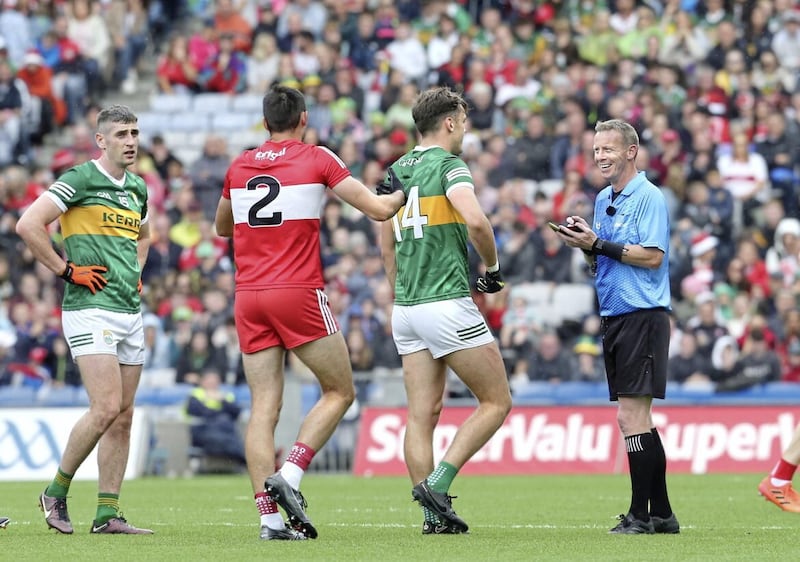
Derry did so much right in this semi-final.
Those who point to Derry wides in the final quarter, from McFaul, Niall Loughlin, and Ethan Doherty, conveniently ignore that Kerry also wasted scoring opportunities during that frantic, frenetic, frenzied period of play. David Clifford, Graham O’Sullivan, and substitute Tony Brosnan all shot off target too, all before that controversial free allowed Kerry to narrow the gap to the minimum margin. The Kingdom also kicked possession away into the Derry defence.
Kerry went 18 minutes without scoring in the second half, longer than any Derry drought.
While it’s fair to state that Derry’s second half tally of four points wasn’t enough to win any major match, Kerry weren’t scoring heavily either.
Indeed the Kingdom had to strive and sweat to draw level at 1-12 apiece and it was Derry who responded better to that.
McKinless twice drove at the Kerry defence, once leading to tricky shot at goal by Niall Toner which was eventually scrambled away, then forcing a superb save from Ryan.
Derry also got the next two scores, through McFaul and a McGuigan free, during that crazy spell when both teams were missing more than they were converting.
No, it was the final stretch that separated these sides.
That ridiculous free award was a momentum-shifter, but Derry could, and should, have turned the tide again.
There’s an element that major matches are akin to many basketball games, with the outcome only decided late on.
Neither Dublin nor Kerry would have worried unduly about not being far ahead or even trailing their opponents slightly.
As long as a match isn’t lost in the first hour, it’s won after that.
One major difference between the two semi-finals was that Saturday’s favourites, Dublin, always seemed to be on top, albeit only by a slim margin. Monaghan were always chasing the game, battling to draw level.
Vinny Corey’s valiant men were never able to get their noses in front.
There was the clear feeling that Dublin were playing within themselves, ready to ratchet it up in the final 10-15 minutes.
In contrast, Derry definitely were causing Kerry concern.
Before the 69th minute Kerry were only ahead on three occasions: from the opening point, after their goal from Gavin White, and when David Clifford converted a free in the 23rd minute to make it 1-5 to 1-4.
Yet those leads barely lasted a blink. The longest time Kerry was ahead followed that first point, and Derry’s goal from Gareth McKinless came just over a minute later.
Once Derry goalkeeper Odhran Lynch’s fortunate point bounced over the bar in the 24th minute the Oak Leafers were never behind until those closing stages of the match.
The huge similarity between the two semi-finals was that the big dogs pulled clear once they did get the lead.
Dublin did so to an extent that reflected very unfairly on Monaghan’s efforts and involvement, thanks to a scrappy goal by substitute Dean Rock.
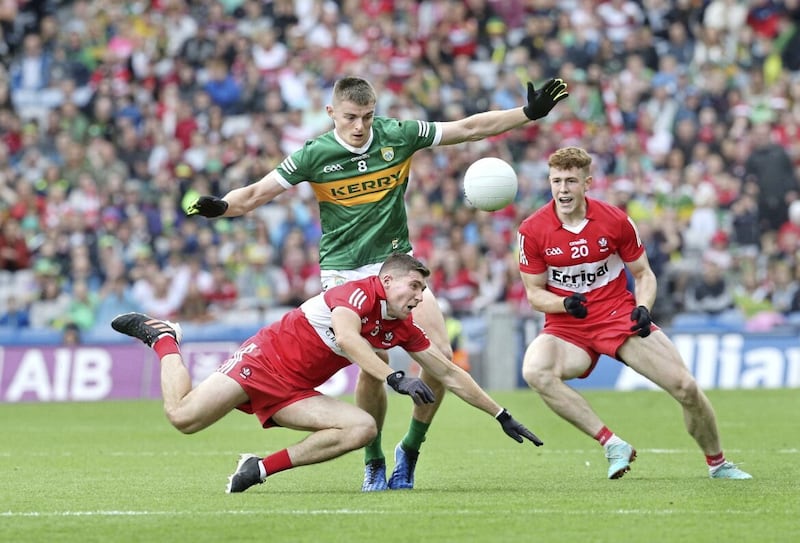
Kerry reeled off five consecutive scores, with Derry only managing one in reply, from full-forward McGuigan – ironically, he didn’t actually want to score, but put too much weight on a free he was trying to drop into the danger area as his team sought a last-gasp levelling goal.
Both Dublin and Kerry scored heavily because they dominated possession in those closing stages, getting their hands on more ball by pressing up aggressively on the opposition kick-outs.
Both Monaghan and Derry would have known that such a squeeze was going to come in the last 10 minutes or so of action.
Knowing about it and dealing with it are two different matters, though, both physically and especially mentally.
Derry are young enough and definitely good enough to win an All-Ireland in the next three years.
They do need more squad depth. If the injuries to key defender Padraig McGrogan and the rampaging McKinless are as bad as they looked, both would have struggled to play any part in the All-Ireland Final.
Kerry’s bench wasn’t much better than Derry’s, but Dublin’s definitely is.
Where the big two are miles ahead is in terms of playing, and winning, big games.
Sunday was a tough lesson for Derry, but if they learn from it they will be back, and better-equipped to come out the right side of close calls, even the terrible ones.

